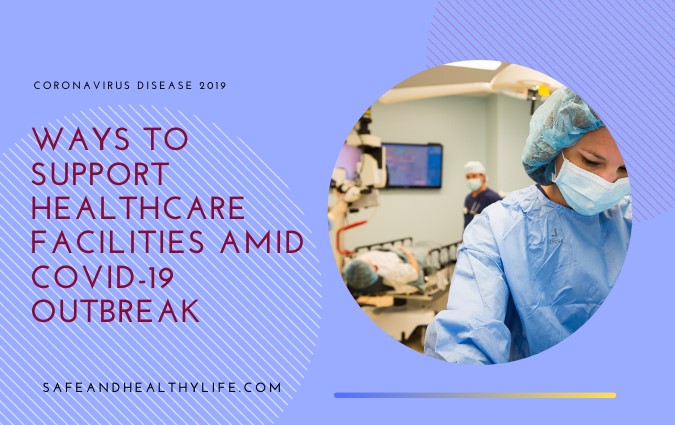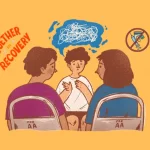
In the current situation, the biggest worldwide fear is coronavirus disease 2019 (COVID-19), which was first reported in China.
Now, barely any country is safe from this devastating disease. It is a severe acute respiratory tract syndrome, caused by SARS-CoV-2. All over the world, this disease has infected more than 1.5 million people, and above 90,000 deaths have been reported as of April 10, 2020.
The pandemic scenario is drastically affecting the healthcare system. The World Health Organisation (WHO) estimates a global mortality rate of 3.4% and is determining ways to control this disease.
The healthcare systems have the objective to treat individuals, but now the situation is entirely different, they have to think about the whole population at the same time.
The outbreak of the disease is exceptionally fast, and that is why it is becoming difficult for healthcare systems to provide efficient services.
It is not necessary that only symptomatic individuals can spread the disease. If someone is asymptomatic but is a carrier of the virus, he or she can also infect multiple individuals. The most common prevention people are following is self-isolation.
Apart from people, healthcare individuals also need to take care of themselves, as they are closest to infected individuals.
To fight this war against coronavirus, everyone should play their part and support the healthcare system. If you want to fulfill your responsibility towards your fellow human beings, then this article is for you.
Here, you will get to know the ways to support healthcare facilities amid the COVID-19 outbreak.
1. Enroll in the First Aid Course
Every hospital is flooding with patients. The crowded emergency wards of hospitals are giving anxiety to people planning a hospital visit, due to which everyone is avoiding hospitals. The virus is spreading by multiplication, but every hospital does not have enough inventory to facilitate all the patients.
Many countries are in lockdown, and during such situations, the hospitals require extra staff. If you have some elementary knowledge and qualification, you can also fulfill your responsibility as a lawful citizen.
It is the time when everyone should come forward with basic training in first aid and other preventive measures. For that, you can enroll yourself for an online first aid course.
Kids and old adults are more prone to this disease because of weak immune systems. And if they visit crowded hospitals for any minor first aid, there are chances of them getting infected.
Therefore, these courses are imperative. If you have kids in your house, you don’t know when they can accidentally injure themselves.
Similarly, if you have elderly family members with chronic heart illness, then in an emergency, you can provide them cardiorespiratory first aid.
2. Workload Distribution
Healthcare organizations are stressing out because they have to manage a large number of patients. Doctors, nurses, pharmacists, and other healthcare professionals are doing overtime to serve humanity.
However, if hospitals distribute the workload smartly, then every health care professional can work efficiently.
When staff will do overtime, eventually, they will become ill or collapse due to work stress. But when they work as a team, they can better take care of themselves and others.
If physicians are at home during quarantine, then they should divide workload through phone calls and messages, and help other health care professionals through telemedicine care. The organization should also support their efforts by giving them work credits.
3. Hire Former Employees Again
Healthcare organizations should also polish the skills of recently employed individuals to increase the workforce. The hospital should also hire previous employees if those individuals want to play their part during the coronavirus outbreak.
Also, hospitals should hire more individuals and introduce online healthcare facilities to prevent the spreading of this contagious disease.
The healthcare facilities should also motivate their existing employees to keep their morale high. The families of healthcare professionals should also support them.
4. Volunteer
Every hospital requires more staff to facilitate patients. It is not a problem of underdeveloped countries, but well-developed countries are also facing it. Many hospitals are requesting unemployed healthcare professionals to work voluntarily.
Every person owns a duty towards fellow human beings, and if you want to fulfill your role, then there is no better way to serve humanity. If you think you are capable of helping others, then you should move forward and work as a volunteer.
5. Mental Health
The worst part of the coronavirus outbreak is people are not only suffering from virus infection, but they are also going through mental and psychological health problems. People who are not infected by viruses have anxiety, fear, or depression.
WHO has also issued a guideline related to mental and psychological health. To get rid of mental and psychological health issues, everyone should follow a healthy lifestyle, including healthy food, exercise, sound sleep, and staying positive.
Everyone should avoid drugs, tobacco, alcohol, or any other addictive substance that is hazardous for health.
6. Personal Protective Equipment and Testing Kits
Hospitals are running out of personal protective equipment (PPE) like N95 masks, PAPR, gloves, gowns, and eyewear. Almost every country and hospitals are suffering from this issue.
Medical staff should be provided the personal protective equipment so that they can fight against the virus with more bravery.
Everyone should follow personal protective measures to prevent the spread and also need to buy lateral flow test covid to conduct Covid-19 antigen testing in minutes.
7. Avoid Overcrowded Places
If you do not have health care skills or qualifications, you can still support the healthcare system through social isolation.
If people adopt social isolation, then the spread of disease can decrease. Subsequently, the hospitals will have fewer patients, and it will reduce health care facility requirements.
Bottom line
No matter, you are a health care professional or belong to any profession, you can play your part in this dreadful scenario. You can support the healthcare system only by preventing yourself from infection.
The government should also play their role by facilitating healthcare organizations. We say that prevention is better than cure, but now there is no cure or vaccine. Therefore, prevention is the only solution we have right now.
About The Author:
Britney Caira is a good writer, and her primary goal is to educate readers and share quality content, She would love to write about Health and Insurance. She assures you that the readers will find her writings interesting and engaging.




